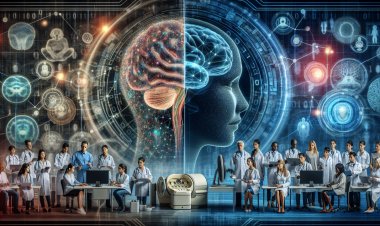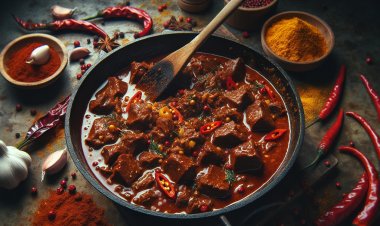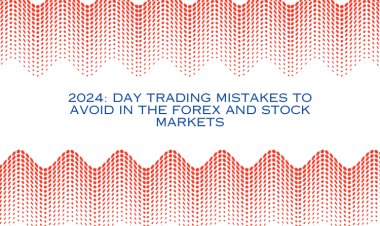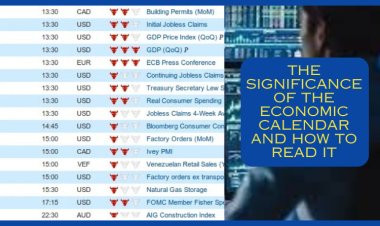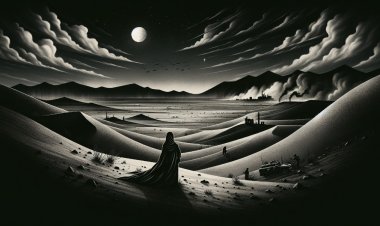The Connection Between Secret Societies, Politics, and Religion
Whispers in the shadows! Unveiling the tangled web of secret societies, their political influence, and religious undercurrents. Uncover history's hidden power plays and decode the mysteries that bind.
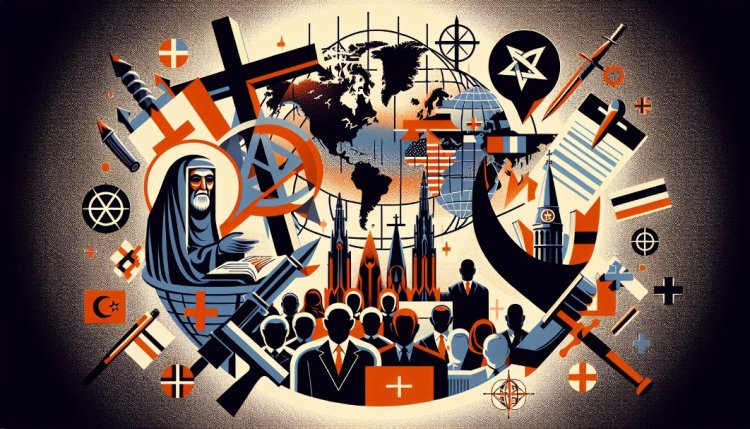
Introduction
Neocon Catholicism and the New World Order are topics that have gained significant attention in recent years. In this blog, we will focus on a specific transcript that sheds light on this topic. We will discuss the introduction to the topic, the importance of the transcript, and the sections that will be covered in this blog.
Neocon Catholicism refers to the ideology that combines conservative Catholic beliefs with neoconservative political views. This ideology has gained traction within the Catholic Church and has sparked discussions about its alignment with the New World Order agenda.
The focus of this blog is a transcript from a video by Michael Cora, where he discusses the dangers of neocon Catholicism and its connection to the New World Order. This transcript brings forth important information that sheds light on the topic at hand.
In this blog, we will cover the following sections:
-
Explanation of Neocon Catholicism and the New World Order
-
Importance of the Transcript
-
Sections to be covered in this blog
The Threat of Iran
Iran poses a genuine threat to global security and stability. This is an important issue that needs to be addressed to prevent further escalation of tensions in the region. In a recent column, the author discusses the possibility of a limited nuclear strike on Iran's military infrastructure and nuclear potential. While this may sound harsh, it is a necessary measure to deter Iran from using its nuclear weapons and to protect the interests of countries like Israel.
The consequences of Iran obtaining nuclear weapons would be grave. Iran's leadership has openly expressed its desire to wipe out Israel, which poses a direct threat to the safety and security of the region. The potential use of nuclear weapons by Iran could lead to a catastrophic conflict, possibly even an Armageddon-like scenario.
Israel, in particular, is at great risk if Iran were to acquire nuclear weapons. Iran's hostility towards Israel is well documented, and the combination of its nuclear weapons and oil wealth would give it significant power and influence in the region. This could potentially destabilize the entire Middle East.
It is important to recognize the threat that Iran poses and to take the necessary steps to address it. The international community must work together to prevent Iran from obtaining nuclear weapons and to ensure the safety and security of countries in the region.
The Influence of Secret Societies
Secret societies have long been a subject of intrigue and speculation. These clandestine organizations operate in the shadows, often with hidden agendas and mysterious rituals. While some secret societies may be harmless and merely focused on fellowship or academic pursuits, some believe that certain secret societies hold significant influence over world affairs and are involved in a nefarious plot for global dominance.
One such belief is the notion of an evil archetype, a hidden power that controls the world and orchestrates events to further its own agenda. This belief is often associated with the New World Order, a concept that suggests a small group of elites is working to establish a global government. While these ideas may seem far-fetched to some, they have gained traction among conspiracy theorists.
One prominent secret society often mentioned in connection with the New World Order is the Council on Foreign Relations (CFR). The CFR is a non-profit think tank based in New York City, and some conspiracy theorists believe it holds significant influence over US foreign policy and decisions. Another secret society that often comes up is the Skull and Bones, a secret society at Yale University. Many influential figures, including former presidents George W. Bush and George H.W. Bush, are alleged to be members of this society.
Conspiracy theories also suggest connections between certain Catholics and Freemasonry, another secret society that has a long and storied history. It is believed by some that there are influential Catholics who are also members of Freemasonry, although the Catholic Church has officially condemned Freemasonry for centuries.
It is important to note that conspiracy theories should be approached with caution. While they can be intriguing and captivating, they often lack substantial evidence and rely on speculation and hearsay. It is essential to critically evaluate any claims made by conspiracy theorists and to seek out factual information.
Corruption within the Catholic Church
Discussion of corruption within the Catholic Church:
-
The Catholic Church has been plagued with various instances of corruption throughout its history.
-
Scandals involving priests and bishops have been widely reported, including cases of sexual abuse, misconduct, and financial mismanagement.
-
These scandals have had a significant impact on the reputation and credibility of the church, as well as on the faith of its followers.
Mention scandals involving priests and bishops:
-
One of the most well-known scandals within the Catholic Church involved instances of sexual abuse by priests, which the Church hierarchy frequently covered up.
-
These cases shocked and outraged many, as they revealed a widespread problem of abuse and a failure to protect and support victims.
-
The Church's handling of these scandals, including allegations of a cover-up, has raised questions about its commitment to transparency and accountability.
Explanation of the author's views on homosexuality in the Church:
-
The author believes that the Church's stance on homosexuality has contributed to a culture of secrecy and denial surrounding the issue of abuse.
-
They argue that the Church's teachings on homosexuality, which label it as inherently disordered, have created an environment where individuals may feel compelled to hide their true selves, leading to a higher risk of inappropriate behavior.
-
The author suggests that a more open and accepting approach to homosexuality within the church could help foster a healthier and more honest environment.
Highlighting the alleged cover-ups within the Church:
-
One of the most disturbing aspects of the corruption within the Catholic Church is the alleged cover-ups that have taken place.
-
Many individuals within the church hierarchy have been accused of prioritizing the protection of the institution over the well-being of victims and the pursuit of justice.
-
These cover-ups have further damaged the church's reputation and eroded trust among its followers.
Questioning the role of the National Catholic Prayer Breakfast:
-
The National Catholic Prayer Breakfast is an annual event that brings together prominent Catholics from various sectors.
-
However, the author questions the role of this event in light of the corruption within the church and the alleged hypocrisy of some of its attendees.
-
They suggest that the event may serve as a platform for individuals who are involved in or complicit in the corruption within the church.
The Influence of Freemasonry
Freemasonry is a topic that has long intrigued and captivated individuals. While some view it as a harmless organization focused on fellowship and academic pursuits, others believe it holds significant influence over world affairs and is involved in a nefarious plot for global dominance. In this section, we will explore the author's views on Freemasonry and its alleged influence.
Freemasonry and Catholicism
One of the key connections often discussed is the alleged relationship between Freemasonry and Catholicism. The author believes that there are influential Catholics who are also members of Freemasonry, even though the Catholic Church has officially condemned Freemasonry for centuries. This raises questions about the alignment of these individuals with both organizations and the potential conflict of interest it presents.
Prominent figures associated with Freemasonry
Several prominent figures have been associated with Freemasonry. One example is the Council on Foreign Relations (CFR), a non-profit think tank that some conspiracy theorists believe holds significant influence over US foreign policy. Another example is the Skull and Bones, a secret society at Yale University that allegedly counts influential figures like former presidents George W. Bush and George H.W. Bush among its members.
Alleged Infiltration of Freemasonry into the Church
Conspiracy theories suggest that Freemasonry has infiltrated the Catholic Church, leading to concerns about the integrity and teachings of the Church. Some believe that there are influential members within the church who are also part of Freemasonry, potentially compromising the church's mission and values. However, it is important to approach these claims with caution and critically evaluate the evidence supporting them.
The author highlights the need to seek out factual information rather than relying solely on speculation and hearsay.
The Role of the Media
The media plays a crucial role in shaping public opinion and promoting certain agendas. It's crucial to assess the media's information critically and take their potential biases into account.
Promoting Certain Agendas
The media has the power to influence public opinion by promoting certain agendas. This can be seen in the way media outlets prioritize certain stories or present information in a specific way. Media consumers need to be aware of these potential biases and seek out a variety of sources to get a more well-rounded perspective.
Media Personalities Associated with Freemasonry and the Neoconservative Movement
There have been allegations of media personalities being associated with secret societies like Freemasonry and the neoconservative movement. While these associations are often speculative and lack substantial evidence, they have contributed to the perception of media bias and hidden agendas.
Questioning the Integrity of Media Outlets
Media outlets like National Review have faced criticism for their alleged biases and potential influence on public opinion. It is important for consumers to critically evaluate the information presented by these outlets and consider multiple perspectives before forming an opinion.
Influence in Shaping Public Opinion
The media plays a significant role in shaping public opinion. The way information is presented and the stories that are prioritized can greatly influence how the public perceives certain issues. Individuals need to be aware of this influence and seek out diverse sources of information.
The Manipulation of Events
Throughout history, there have been numerous instances where events have been manipulated for political gain. These instances highlight the power and influence that certain individuals and organizations have held for history. One specific event that has been the subject of conspiracy theories and manipulation allegations is the 9/11 attacks.
Many individuals question the official narrative of the attacks and believe that there is a larger conspiracy behind them. They contend that secret societies and globalist agendas planned the attacks to serve their own interests. According to these theories, Islamic extremists did not carry out the attacks; rather, they were an inside job.
The alleged conspiracy behind 9/11 involves questioning the role of the government, the intelligence agencies, and even certain members of the Catholic Church. Some believe that there are influential Catholics who are also members of secret societies like Freemasonry, despite the Church's official condemnation of the organization.
It is important to approach these conspiracy theories with caution and critically evaluate the evidence presented. While some theories may seem intriguing, they often lack substantial evidence and rely on speculation and hearsay. It is crucial to seek out factual information and rely on credible sources to form a well-rounded perspective.
However, the manipulation of events for political gain is not limited to the 9/11 attacks. Throughout history, various instances of corruption within the Catholic Church have also come to light. Scandals involving priests and bishops have been widely reported, including cases of sexual abuse, misconduct, and financial mismanagement.
These scandals have had a significant impact on the reputation and credibility of the church, as well as the faith of its followers. The cover-ups and alleged prioritization of the institution's protection over the well-being of victims have further eroded trust among its followers.
Furthermore, the role of the media in shaping public opinion and promoting certain agendas cannot be ignored. It's crucial to assess the media's information critically and take their potential biases into account. The media has the power to influence public opinion by prioritizing certain stories or presenting information in a specific way.
Individuals must be aware of this influence and seek out diverse sources of information to form a well-rounded perspective. This is especially important when it comes to conspiracy theories and controversial events, as misinformation can easily spread through various media channels.
In conclusion, the manipulation of events for political gain has been a recurring theme throughout history. From alleged conspiracies behind major events like 9/11 to corruption within the Catholic Church and media bias, it is essential to approach these topics with caution and seek out factual information. By critically evaluating the evidence and seeking diverse perspectives, individuals can develop a better understanding of the complex world we live in.
The Danger of a New World Order
The concept of a New World Order is a topic that has garnered significant attention and debate in recent years. This idea refers to a globalist agenda that seeks to establish a centralized authority and power structure over nations and societies worldwide. While proponents argue that a New World Order would promote global cooperation and stability, there are several dangers associated with this agenda.
Loss of Freedom and Sovereignty
One of the major concerns with a New World Order is the potential loss of individual freedoms and national sovereignty. Critics argue that a centralized global authority would undermine the autonomy of individual nations and limit the rights and liberties of their citizens. This would result in a loss of control over national policies and decision-making processes, ultimately leading to a lack of accountability and transparency.
Motives of a Globalist Agenda
Questioning the motivations of those who support this agenda is another risk that a New World Order poses. The promotion of a globalist agenda, according to skeptics, may have hidden goals like concentration of power and control in the hands of a small group. This raises concerns about the potential manipulation and exploitation of global systems and institutions for personal or political gain.
Potential for Manipulation and Control
With a centralized global authority, there is a heightened risk of manipulation and control over information, resources, and wealth. Critics argue that this concentration of power could lead to the suppression of dissenting voices, the stifling of innovation and competition, and the perpetuation of inequality and injustice. The potential for widespread corruption and abuse of power cannot be overlooked.
Threat to Democracy
A new world order could pose a significant threat to democratic principles and systems. The emphasis on global governance and decision-making could undermine the democratic process and diminish the voice and representation of ordinary citizens. Critics argue that a centralized global authority would prioritize the interests of the elite and powerful, neglecting the needs and concerns of everyday people.
In conclusion, while the concept of a New World Order may seem appealing on the surface, there are several dangers associated with this globalist agenda. The potential loss of freedoms and sovereignty, questioning of motives, potential manipulation and control, and threat to democracy highlights the importance of critically evaluating and questioning the implications of a centralized global authority.
Conclusion
In conclusion, this blog has explored the dangers of neocon Catholicism and its connection to the New World Order. We have discussed the ideology of neocon Catholicism, the influence of secret societies, corruption within the Catholic Church, the role of the media, the manipulation of events, and the danger of a New World Order. It is important to reiterate the main points discussed in this blog:
-
Neocon Catholicism combines conservative Catholic beliefs with neoconservative political views.
-
Secret societies, such as Freemasonry, have been linked to the New World Order conspiracy theory.
-
Corruption within the Catholic Church, including scandals involving priests and bishops, has damaged its reputation and credibility.
-
The media plays a crucial role in shaping public opinion and promoting certain agendas.
-
Events have been manipulated throughout history for political gain.
-
A New World Order could lead to a loss of individual freedoms, motives for globalist agendas, potential manipulation and control, and a threat to democracy.
It is important to stay informed and critically evaluate the information presented by media outlets and conspiracy theories. Recognizing the dangers of Neocon Catholicism and the New World Order is crucial to understanding the complex world we live in. By seeking diverse perspectives and factual information, individuals can develop a better understanding of these topics and make informed decisions.



 admin
admin 






